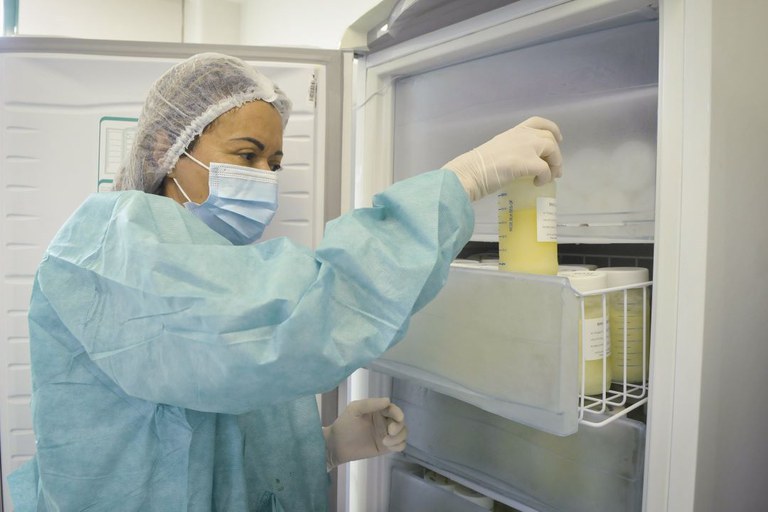Notícias
HEALTH
May 19 is national, international breast milk donation awareness day

Human milk bank in Federal District: Brazil is international reference - Credit: Geovana Albuquerque/ Agência Brasília
Sunday, May 19, is National and World Human Milk Donation Day. In Brazil, this date is part of the National Human Milk Donation Week, which aims to encourage donations and to educate the public about best practices in donating human milk.
With the largest and most complex network of human milk banks in the world, Brazil is an international reference and has already shared its experience with more than 20 countries in Africa, Latin America, the Caribbean and Europe. Brazilian technical cooperation on this subject is led by the Brazilian Cooperation Agency (Agência Brasileira de Cooperação – ABC), under the Ministry of Foreign Affairs, in partnership with the Ministry of Health and the Oswaldo Cruz Foundation (Fiocruz).
The First Congress of Human Milk Banks of the Community of Portuguese-Speaking Countries was held from May 13 to 16 to promote the exchange of best practices in organizing human milk banks, including Brazil’s extensive experience and expertise in this field.
With the main theme of "Food and Nutrition Security for At-Risk Newborns and Infants", the event in Luanda (Angola) was promoted by the governments of Brazil and Angola, in partnership with the Executive Secretariat of the Community of Portuguese Speaking Countries (Secretariado Executivo da Comunidade dos Países de Língua Portuguesa – SECPLP). Sessions were livestreamed on ABC's YouTube.
BANK NETWORK – Brazil’s Human Milk Bank Network (RBLH-BR) is a strategic initiative to promote, protect and support breastfeeding. It encompasses the collection, processing and distribution of milk for premature and low-birthweight babies whose mothers are not able to feed them. It also promotes and provides support and guidance for breastfeeding women.
An initiative of the Ministry of Health, through the Fernandes Figueira Institute (IFF/Fiocruz), the Human Milk Bank Network is currently part of the National Policy for Comprehensive Infant Healthcare and Breastfeeding (Política Nacional de Atenção Integral à Saúde da Criança e Aleitamento Materno – PNAISC). There are 222 human milk banks in all Brazilian states and also 217 collection points.
Find out where you can find a human milk bank closest to you by calling 136 or following this link.
DONATING MILK – Breast milk donation is essential to increasing the recovery chances for premature and/or low-birthweight babies who are hospitalized in neonatal ICUs, as well as providing them with healthier development throughout their lives. Every breastfeeding woman is a potential human milk donor. All it takes is good health and not being on any medication that may interfere with breastfeeding.
Any amount of donated human milk can help hospitalized babies, who, depending on their weight and clinical conditions, may need as little as 1ml at each meal. Donated breast milk goes through a rigorous process of analysis, pasteurization and quality control before being distributed.
Before being donated to a human milk bank, breast milk must be stored in a wide-mouthed glass receptacle with a plastic lid. Both the receptacle and the lid must have been previously sanitized with soap and water and then boiled for 15 minutes, counted from the time the water begins to boil. It is important to sanitize the breast with water and to wash the hands with soap and water, as well as wearing a mask over the nose and mouth to prevent droplets of saliva from contaminating the donated milk. After the collection, the milk will be analyzed, pasteurized and subjected to quality control before being supplied to babies in neonatal units.